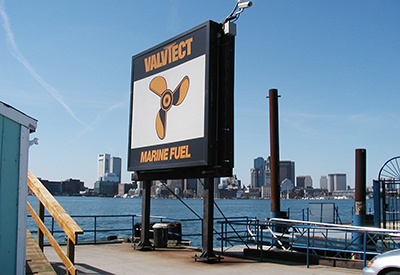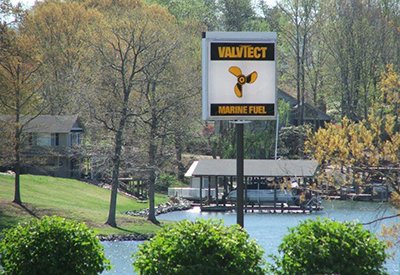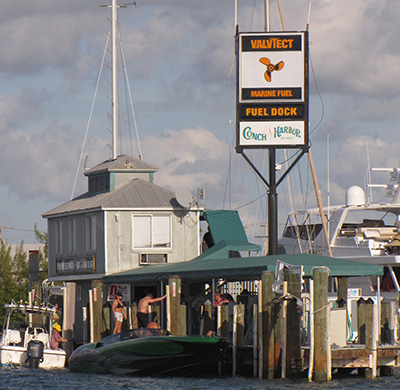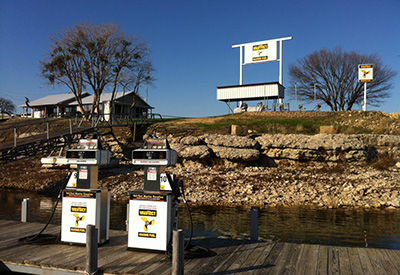VALVTECT MARINE FUELS COMES TO CANADA

Apr 9, 2019
By Andy Adams
Although there are now some 800 ValvTect marinas and fuel docks across the United States, Canada so far has only one; False Creek Fuels in Vancouver. Given the apparent reductions in non-ethanol fuel availability from Canadian fuel distributors, the timing for ValvTect to enter Canada could not be better.
I have had numerous discussions with top tech advisors at various marine and power sports engine companies and ethanol problems are clearly wide-spread. The consequences for boaters are potentially very serious if their engine is disabled out on open water.
I contacted Dave Grochocki, Vice President of Operations at ValvTect and I had a number of important questions; what is the company’s history, how long has Valvtect been on the market and most importantly, how does it work?
 He told me that the company has been in business for over 30 years now. They are headquartered out of Chicago where ValvTect is part of a much larger chemical corporation, RPM International Inc., that includes such brands as Rust-Oleum, Petit Paints and others. It’s a Fortune 500 company, so this is big league.
He told me that the company has been in business for over 30 years now. They are headquartered out of Chicago where ValvTect is part of a much larger chemical corporation, RPM International Inc., that includes such brands as Rust-Oleum, Petit Paints and others. It’s a Fortune 500 company, so this is big league.
The company was founded long ago by Jerry Nessenson, a fuel industry veteran, when the laws changed and lead was removed from fuels as an additive. The lead protected valves and other internal engine parts but it was environmentally toxic. Nessenson was one of the industry leaders who pioneered other additives to replace lead. Every fuel company needed to do that as well; Shell, Esso and all the others use additives of various types to deliver good performance without lead, in engines of all types.
So, the way ValvTect Marine Fuel (gasoline and diesel formulations) works is that a Certified ValvTect fuel distributor formulates marine fuels by adding ValvTect products in carefully measured quantities. This takes the guess-work out of the equation when they supply ValvTect Marine Fuel as a pre-treated fuel formulated for marine use.
 For gasoline, ValvTect goes “Beyond Top Tier” performance levels to help keep fuel stabilized for 1 year or longer, inhibit corrosion, contains a moisture dispersant (to help safely remove water), prevent phase separation with ethanol fuels, clean fuel injectors, intake valves, intake port, and manifold deposits, clean combustion chamber and carburetor deposits, and prevent filter plugging and extend filter life.
For gasoline, ValvTect goes “Beyond Top Tier” performance levels to help keep fuel stabilized for 1 year or longer, inhibit corrosion, contains a moisture dispersant (to help safely remove water), prevent phase separation with ethanol fuels, clean fuel injectors, intake valves, intake port, and manifold deposits, clean combustion chamber and carburetor deposits, and prevent filter plugging and extend filter life.
ValvTect would have entered the Canadian market sooner, but they felt they needed to also offer diesel marine fuel and that required adding a biocide. The challenge was getting that biocide approved for use in Canada. It took quite a while.
The difference is significant. For diesel, ValvTect stabilizes the fuel and extends the shelf life up to 2 years and longer, improves thermal stability, prevents filter plugging, extends filter life, inhibits corrosion, protects against rust, controls moisture (thus preventing sludge), lubricates injectors and pumps to prevent premature wear, increases cetane (providing easier and faster start-ups, less noise, and reduced smoke and exhaust emissions), cleans up internal diesel injector deposits(IDID) and external tip deposits, reduces chamber and piston deposits, improves fuel economy, and reduces smoke, odor, and soot. And of course, the fuel contains a biocide which will prevent and kill microbial growth.
Another part of the process to become a ValvTect Certified Marina is that you will need to undergo annual fuel testing to ensure that the fuel and tanks meet the high standards set by ValvTect.
 In the future, the performance and safety issues presented by rising levels of ethanol are going to have to be addressed. Additives of some type are the only solution and ValvTect has taken a comprehensive approach to solving the problems.
In the future, the performance and safety issues presented by rising levels of ethanol are going to have to be addressed. Additives of some type are the only solution and ValvTect has taken a comprehensive approach to solving the problems.
In our opinion, consumer education will be critical to our industry’s future success and ValvTect has both an advertising and a point of sale signage program to communicate to boaters that they are buying Marine Fuel for their boat – that regular highway gasoline is different, and not as good for their marine engines.
You can learn more at https://www.valvtect.com/marineFuelGasoline.asp#close



























